THE WITNESS
UK and Germany firms use government officials to grab 20,000 peasants’ land
Published
7 years agoon
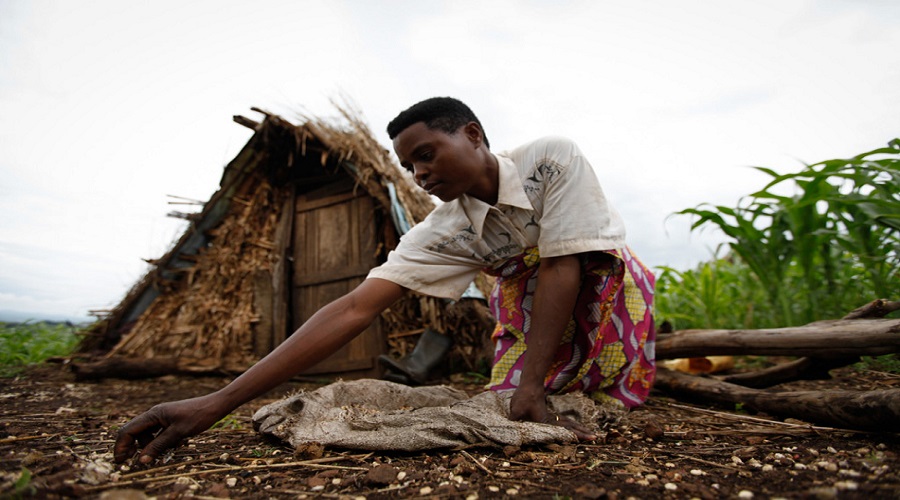
Extracted from the Independent , January, 2012.
As people celebrate Christmas, it is a luxury that others can even hardly afford to think about and have spent their last 10 Christmas like that—sad, poor and displaced.
One of them is Mzee Matayo Kiyitawaguru, 80, one of the 2,000 people that were forcibly and brutally evicted by the Ugandan army following the government’s lease of the residents’ land to Kaweri Coffee Plantation, a subsidiary of the Hamburg-based Neumann Kaffee Gruppe.
His house was burnt during the eviction. With no house and income, his wife started strangling him blaming him until she left him. “I have suffered my son, I loved my wife but we had to part because when I lost my property she turned anger on me,” he says as he gasps for breath because of hunger—a terrible juxtaposition of a man that once used to harvest six and two bags of coffee and tea respectively.
“They destroyed and burnt everything as bullets flew in the air,” Kiyitawaguru says, “they lied that they would build us [three elders] houses, two of us have died I am the only one left.”
Kiyitawaguru lives in a crowded village outside the vast coffee plantation with some of the people that he was evicted with.
A few metres from his home is David Sekandi whose grandfather was one of the earliest people to stay on this land. He says that his ancestors relocated here over 100 years.
Ssekandi reckons that the August of 2001 was like nothing he had ever seen. “Kids and old people died—some were beaten by mosquitoes and snakes,” he says, “we used to live in the bush because our houses were burnt and we had nowhere to stay.”
He adds that with no option, many evictees were forced to work for the company that displaced them.
The company also displaced the areas main school– Kitemba Primary School—where its head office now comfortably sits. As such many children dropped out of school and now some of them work in the company – some 15 of them were seen seated outside the head offices having porridge for lunch.
Workers say they are paid between Shs. 2300—2700 to work on an area of 700 trees of coffee or about two hectares daily. Since Uganda has no minimum wage, Kaweri officials say that the wages are adequate using the wages in the tea and sugar sectors as a defence.
No lessons learnt—Namwasa
Despite public outcry and international concern over the eviction, 10 years after, another group of 20,000 villagers [2011Oxfam report] has been evicted by the army, their crops destroyed, houses burnt from about 10 villages to give way for a plantation forest by New Forest Company Uganda Limited (NFC).
52 year old, William Bakasheka who represents part of this group says they are now concentrated in a small village-on a certain landlord’s one mile and 560 hectares of land on the outskirts of the forest company.
The villagers here know that as President Museveni pushed Parliament to pass the Land Amendment Bill 2007, claiming it was to protect tenants from evictions with one hand, his other hand wrote letters sanctioning their eviction from the land most of them had spent over 10 years.
“I know for sure that it’s the President that ordered my eviction from land I had spent about 14 years,” Bakasheka says.
In a Sept 14, 2009 letter, Museveni wrote to the Minister of Water and Environment, Maria Mutagamba, asking her to evict the villagers. On his orders, Kirunda Kivejinja (then Internal Affairs) and Asuman Kiyingi (State for Lands) and Mutagamba to visit the area and order the people off the land.
“These ministers came here and wanted us to quit on that very day but one of our leaders negotiated with them to give us a month so that we could prepare ourselves,” Bakasheka says.
Gold mine
Although, government insists that the area is a forest reserve, President Museveni’s letter to Mutagamba says the area is littered with gold. He said Kisita Mining Company was commissioned in 2001 to prospect for gold in the area.
Museveni was also clear. Only people who settled in the area by 1992, would be resettled in line with his “Executive Order on halting the eviction of encroachers” on forests. Of the 20,000, NFC says that on 32 families were there by 1992.
Several officials disagreed with the eviction but theirs fell on deaf ears.
Godfrey Kazibwe, the Presidential Advisor on Luwero Triangle for instance, wrote to the National Forestry Authority in April 2009 dismissing claims that the area was a forest reserve and telling them not to evict people.
“There is suspicion that the land in question is not part of the forest reserve and the people involved are private individuals disguising themselves as NFA personnel whereas not, or are using some elements in NFA,” Justus Karuhanga, President Museveni’s former legal aide, also wrote to the RDC Mubende, on July 25, 2005.
Apart from the two, residents sold their remaining belongings, raised Shs20million and sued the forest company for harassing, and trying to evict them.
On Aug 24, 2009, High Court at Nakawa issued an order restraining it from evicting people. The directive was to be heard on Oct 8, 2009 but Justice Faith Mwondha extended it to March 18, 2010.
However, on December 11, 2009, ministers Kivejinja, Mutagamba, Kiyingi and RDC Bewayo at a rally told the people to vacate the land by Feb 28, 2010.
On Jan 3, 2010, the army arrested some of the villagers and their leaders in Kyamukasa as they met to plan on what to do. And the evictions took off. Although NFC authorities say the eviction process was peaceful, Bakashesha says that one kid died in one of the houses that were burnt, another fell in a water pond as they escaped.
Zawedde Lukwago & Co. Advocates, the counsel for the villagers says that two schools were closed by the forestry company. Ssefra Parents School had 350 pupils while Mpologoma Parents School had 400.
Government officials say most of these are illegal immigrants from Congo and Rwanda. But Bakasheka disputes this saying that they were given land by Kayoga Lubega (commander of the world war heroes) that the president had given him to distribute amongst the sons and grandsons of heroes.
“Government had given us LCs, we had polling stations, if they knew we were illegal immigrants why did they give us LC and polling stations; they knew we were here lawfully,” Bakasheka says.
Bakasheka, still the NRM chairman in his village – he registered supporters for the party – says they were threatened to vote for Museveni.
“We were threatened, we were told that if you give Besigye votes, Museveni will go back to the bush and you will have two wars to fight hunger and war,” he says, But honestly now I am NRM on the skin but not at heart.”
The displaced group mainly farmers have lost years of their hard labour. Most of them are renting shelter in a small trading centre. On the outskirts of the trading centre, hundreds of the evictees have erected one-roomed-triangular-shaped grass thatched shacks where they stay in what looks like a refugee camp.
Everything here including food, Bakasheka says, is expensive, most of these people can hardly feed themselves, how can they feed their families, all their lives they depended on one thing farming but now they have nowhere to farm.
According to the Population and Housing Census Analytical Report 2005, the district’s population is projected at 603,900 in 2012. Of these, 78.2 percent of the households depend mainly on subsistence farming.
Like Kiyitawaguru and all those displaced by Kaweri coffee, these people know not Christmas and some of them are not likely to have a meal on that day. The cheapest meal here goes for Shs.3000, yet a labourer on a plantation which is what most of them do earns a maximum of Shs 2700.
Many kids have dropped out of school. Bakasheka who is arguably better off is a frustrated man. He had four kids in secondary school, three of which have since dropped out because of lack of school fees.
He says that nobody cares about them as if they are a cursed lot. “Ever since we were displaced, no single government official has ever cared to know where we relocated to, how we are copying, no one,” he says sadly, “It is only NGO’s like Oxfam, journalists and Uganda Land Alliance that keep coming to see how we do.”
It is not two years since Bakasheka and his fellow villagers were displaced. But for Kiyitawaguru and all those evicted by Kaweri coffee, it is now over 10 years and the government has never cared to look their way despite several promises to compensate them. “We only see them during campaigns and when they get votes that is where it ends,” Ssekandi says.
Together, Kaweri coffee and New Forest Company have displaced over 22,000 people in Mubende district alone. Going by the 2002 Population and Housing Census which put the district’s population at 436,493, the two international companies have evicted five percent of the population. Since 2007, over 17,000 were also evicted the neigbhoring Kiboga district.
The total area of Mubende District is 1793.4 sq Mile or 464,611.4 Hectares. But of this the two companies sit on 22510 hectares or 87 sq Mile – Kaweri 2510 and NFC 20,000 hectares.
As you traverse the district, there are thick commercial plantations mainly of commercial pine forests that residents say were once home to people. Residents say that there are more villagers where evictions are looming because of commercial plantations.
According to the environmental alert report 2006, forested area outside protected areas in Mubende was estimated at 123,127 hectares which is 26.5 percent.
The National Forest Authority claims that by leasing what they say is a forest reserve to private commercial farmer’s they are rejuvenating Uganda’s diminishing forest cover. John Diisi, NFA’s Coordinator of GIS/Mapping, said out of Uganda’s 3.6 million hectares of forest cover, 80,000 hectares is lost each year.
This could gain Uganda a lot of carbon credits but according to Oxfam denying the residents due compensation, NFC contravened international practices regarding resettlement and development.
Oxfam Country Director Ayman Omer says their report was not looking at the legality of people on the land, but at their rights. “You cannot just evict them without giving them alternative livelihoods,” Omer told The Independent.
Oxfam also found the term “encroachers” offensive. “This is a dangerously loaded term that pre-judges people’s rights and dehumanizes them, making it easier to justify violent actions. And it is a highly misleading term, because the people maintain that they did in fact have lawful entitlement to the land and were testing that argument in ongoing legal cases,” the report argued.
But NFC blames the delay in resettling the entitled families on the Ministry of Lands, Housing and Urban Development, whose mandate it says was to provide compensation.
Risky business
No one wants to comment on land issues in Mubende because apparently it is risky. At the district headquarters after several requests, a top district official agreed to talk to us but on conditions of anonymity. But the official started with a warning:
“My son be careful as you follow these land issues in Mubende, you are still young and your parents still love you. These people who have deployed armies, fired bullets and shot some people cannot sit as you expose them.”
Asked why there were rampant land evictions in Mubende than any other district in Uganda, the official said that the main reason was that much of the land in Mubende was Mailo land belonging to Buganda Kingdom but was grabbed by individuals and has been changing hands since then.
The district official also added that knowing that most of this land belonged to the Buganda Kingdom, several top government officials have connived with multinational companies to evict people from the land. This land according to the official is in former Bewekula and Singo counties part of the 9000 sqmiles.
The official cited plantation farming as one of the major drivers of evictions adding that while people have heard about mainly Kaweri and Namwasa evictions many people have been evicted by powerful individuals who buy land expensively and fence off other dwellers forcing them to sell. The official cited lack of effective laws to protect landlords and squatters.
Apart from nongovernmental organizations and some of the evicted, the district official said that the only person that has authoritaty on the land issues is the Resident District Commissioner because of the office’s deep involvement in displacing people.
Although the district has a land board, according to the official, this has not taken any part because the directives come from the President’s office thus the direct connection with the RDC’s office.
So touchy is the matter that when this reporter approached the Deputy RDC, Evelyn Tinkamarirwe, she quickly referred him to the District Internal Security Officer (DISO), where she called a small meeting to probe the reporter’s intentions.
“The Namwasa issue has reached a point of no correction by local media, Oxfam an international NGO came and did a false report,” one of the officers said as the, “there is not much you can change, we would advise to go back to Kampala.”
While Mubende is at the centre of massive land evictions and grabbing cases, several parts of the country have suffered too.
For instance in Buliisa and Hoima districts, since the discovery of massive deposits of oil of about 2billion barrels, it was estimated that by 2009 over 700 hectares of land were grabbed and people evicted. Some hundreds of people in Bullisa still complain that they have not been compensated.
A Feb 2008 World Bank northern Uganda land study found that Government was massively grabbing land either directly or indirectly through military officers to give it to investors. The report pointed to high ranking military officers who had grabbed land in Acholi particularly Amurru Districts and the elite Acholis in Kitgum District.
Although the Land Act 1998 prohibits the sale of land to non-Ugandan enterprises and foreign companies, President has made it his habit to give them land and in most cases free of charge.
A 2009-2010 report by FIAN, Food First Information and Action Network, an international organization, found that the government has reportedly leased 2m feddans of land (840,127 ha) – a staggering 2.2% of Uganda’s total area – in various parts of the country to Egypt, so that Egypt’s private sector may come in and produce wheat and maize for export to Cairo.
In 2003, the High Commissioner for Human Rights observes that ‘this race to attract investment might lead to a race to the bottom to the severe detriment of human rights
…
Related posts:
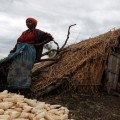
 Oxfam Report Says Thousands Evicted in Uganda Land Grab
Oxfam Report Says Thousands Evicted in Uganda Land Grab
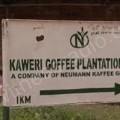 Coffee investor accused of evicting 400 peasants
Coffee investor accused of evicting 400 peasants
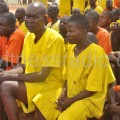 Organized patterns of violent land evictions in Mubende
Organized patterns of violent land evictions in Mubende
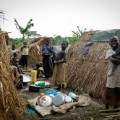 Land Grabbing: Cases that opened doors for violent land evictions and promoted impunity in Mubende district
Land Grabbing: Cases that opened doors for violent land evictions and promoted impunity in Mubende district

You may like
-
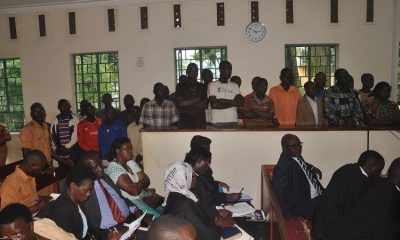

Renewing demand for justice; the 28 land rights defenders have applied for bail
-


A tree planting Chinese Company, Formosa Limited in fresh illegal land eviction…
-


Electricity Transmission Company holds titles in Masaka as residents point to foul play
-
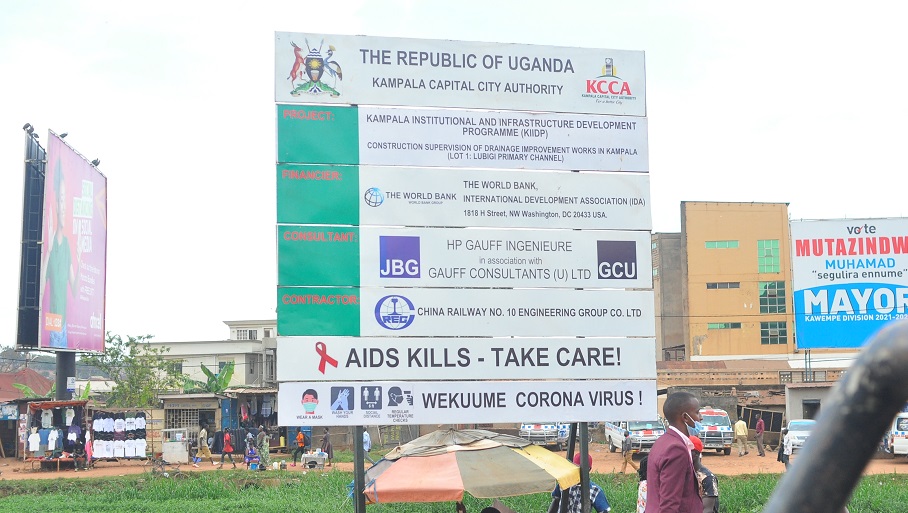

The World Bank and its partners flout business and human rights standards to evict hundreds of families
-


The New Forest Company is engaged in fresh tactics to intimidate affected community it evicted 10 years ago…
-


A long journey to freedom: Trial of 10 community members in Mityana flops
THE WITNESS
Enemies of the State: Resistance to the EACOP becomes a deadly task
Published
1 year agoon
July 3, 2024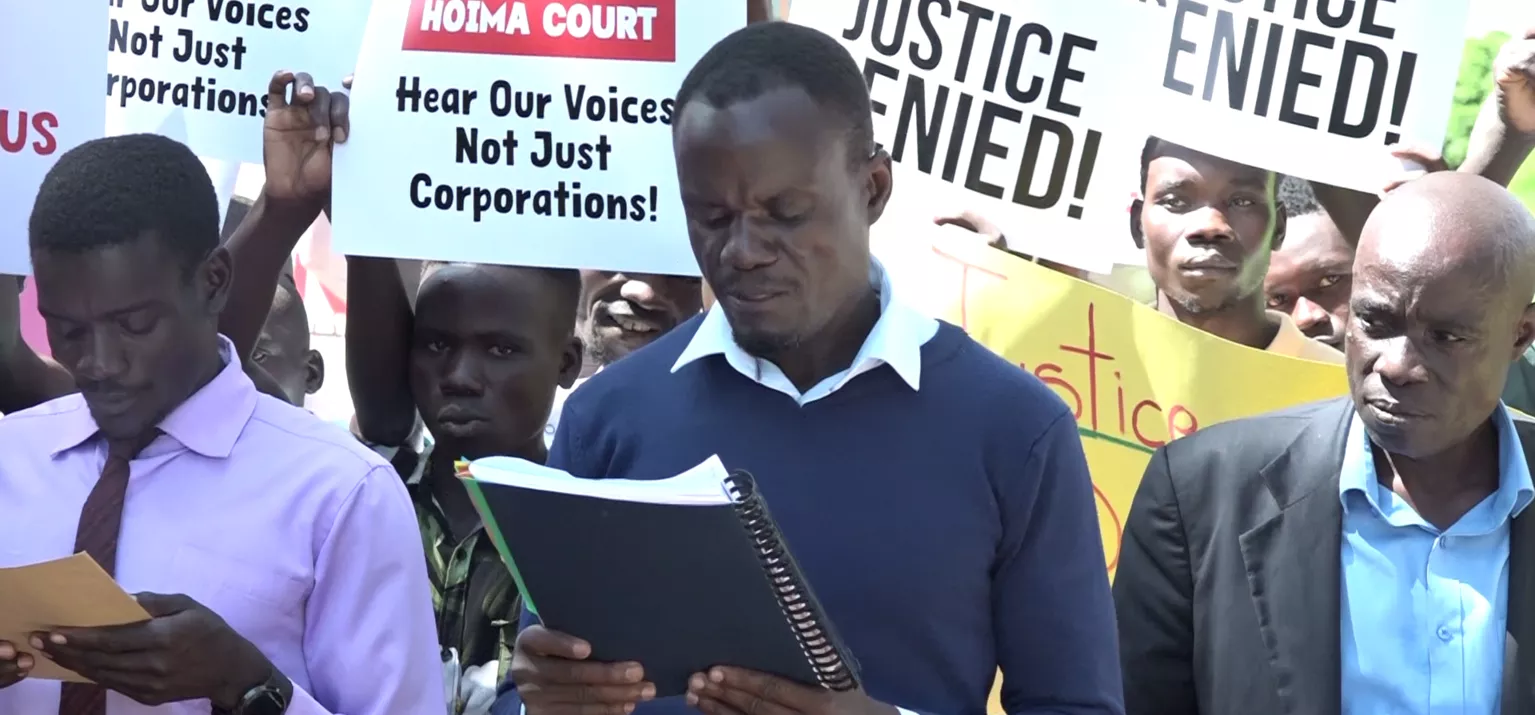
It is no secret: in Uganda it is badly about human rights. With the construction of the East African Crude Oil Pipeline, repression against lawyers, but activists and journalists is taking on new proportions. They are staged as enemies of the state. The human rights organisation Witness Radio reports from Uganda.
The morning of the 15th April 2024 in the court of the Ugandan city of Hoima did not go as usual: court officials, police officers and passers-by watched helplessly as a crowd led by the activist Fred Mwesigwa read a petition in the Hoima High Court: “We are deeply concerned about the recent court ruling that orders the expulsion of 42 families in the Buliisa district to make room for the Tilga project.” They protested against a court order of December 2023, which gave the government the green light to the community to expel the community for the oil production project. The community had previously refused to accept the government-intended compensation payments for their country, on which they live and from which they live.
The Buliisa case is just the tip of the iceberg of the many communities affected by oil production projects. In Uganda and Tanzania, the rural population in particular has to give way to a 30-metre-wide pipeline corridor, oil production fields, tank farms, infrastructure and safety zones around the East African Crude Oil Pipeline (EACOP). According to a study published in 2022 by the organisation Les Amis de la Terre, up to 118,000 people could be affected by resettlement along the pipeline route, including mainly farming communities.
Low discompensation
In a conversation with Witness Radio, those affected reported that they were no longer in a position to meet their basic needs due to insufficient compensation and inadequate resettlement plans. James 1, who was taken to the Kyakaboga resettlement camp, declared that the inhabitants had been provided with infertile land that was unsuitable for the cultivation of crops. In addition, the camps are overcrowded, which means that the residents are exposed to illness. He stressed that access to health services is particularly challenging. Pregnant women in particular are facing difficulties, as the nearest health centre is eight kilometres away. Tragically, James said, three pregnant womans would have lost their babies on their way to there.
“Their houses were set on fire, their ownness was plundered.”For the East African Crude Oil Pipeline, climate, nature and people need to give way
Uganda’s oil dilemmaControversies about the black gold
Black Gold from East AfricaConstruction of the EACOP crude oil pipeline is imminent
As in the case of the 42 households from Buliisa, who refused compensation from the government, many of the EACOP projects say those affected that the government did not adequately assess their land and property. Nevertheless, they were forced to release their land for the project. They criticised the fact that they were not sufficiently sensitised to the negative effects of the project. Instead, the government and the majority shareholders Totalenergies promised large compensation, prosperity growth and employment opportunities that have not yet occurred.
A study by Inclusive Development International also concludes that, in accordance with international standards, the government and TotalEnergies have systematically failed to involve the people affected by the project and civil society in the planning and providing them with low-threshold information. The study also states that when testing the environmental impact of Tilenga, Kingfisher and EACOP, it was found that the project promoters do not use the “best available techniques” to prevent the impact on the impact of ecosystems. The decision to use low-cost technologies for oil drilling and water-leading areas is therefore a predictable risk to the health and safety of local residents.
Opposition underesired
When the first land survey for the Tilenga project took place in 2020, many families expected to benefit from the project. Later, however, TotalEnergies aimed to acquire their country free of charge. In consultation with some real estate agents, local authorities, police and army, the company distributed almost 20,000 people in Kapapi (Hoima) in February 2023. In the course of this, women were also raped. Before the forced expulsion, the local police, in cooperation with the real estate brokers, had arrested those who criticised the land grab in order to intimidate the other members of the community.
Activists are presented as ‘anti-development’
The seven defenders of the plaintive families, Karongo Edward, Mulega Eria, Kataza Samuel, Rangira Stephen, Rubyogo Edward and Mbombo Stephen, were charged with a host of alleged crimes. In June 2023, after three to five months in prison, they were released on bail. However, as part of their bail pads, they must report regularly to the court in Hoima.
The criminalisation of land and environmentalists has become a common tactic by the Ugandan authorities in order to silence opposition and maintain impunity. This tactic does not only exist in Uganda, it is a global problem – especially in the context of large infrastructure projects.
According to the data from Witness Radio, in seven out of ten cases of evictions, defenders are subjected to targeted violence, torture and arbitrary arrests. They are often falsely charged with a large number of crimes ranging from domestic peace and attempted murder. At the end of June 2023, Witness Radio reported that more and more environmental and land-legal defenders who uncover questionable business are targeting state controls. From 2010 to 2023, more than 1,500 people. In connection with the pipeline, Witness Radio has documented 75 cases of arbitrary arrests, detentions and forced disappearances since the first construction work.
Opposition to the EACOP has become a mortal danger. Activists and human rights activists are confronted with hate speech, arrests, torture and death threats and are portrayed as ‘honsensible to development’ – on the grounds that they would promote the interests of Western countries.
The Resistance goes on
Ugandan activist Bob Barigye reports that the state security forces are using “false accusations” to arrest activists. “We are considered enemies of the state,” says Barigye. “The police are now preferting psychological torture because physical torture would create poor publicity for the oil pipeline project, which could deter investors and insurers. The government does not want to be in the international spotlight for the wrong reasons.”
Not only the project opponents, but also journalists in Uganda find it difficult to report on the EACOP projects: Gerald Tenywa is a Ugandan science journalist who has been reporting intensively on environmental protests for decades. In an interview with Drilled Media, he describes the difficulties in reporting on EACOP activists who criticise the construction of the pipeline. He cites the government’s intolerance to protests as a hurdle for journalistic work and stresses that in developing countries “oil and politics have almost always merged”.
“Oil and politics are almost always fused”
Emmanuel Okello works for the Uganda Radio Network in the Ugandan Albertine region. According to him, reporting is also made more difficult by the fact that the government and the companies involved keep the most important information about the oil projects under wraps. “A lot is claimed to promote these projects, including the development of the communities,” says Okello, “but this is not the case on the ground. People do not benefit from the projects, they only destroy their livelihoods. If you ask the government who exactly the beneficiaries they are talking about, there is no clear answer.”
It remains a difficult task to bring the voices of the affected communities into the public and to cope with the associated repression. It is also connected with obstacles to achieving justice through legal route. Thus, the court in Hoima rejected the application for the cessation of the evictions of the 42 families in Buliisa mentioned above.
The presentation of the plight of these communities, the protection of the environment and support for court cases are crucial, especially at a time when the space for civil society and media freedom in Uganda is becoming ever smaller. This requires cooperation with international groups and support for civil societies and media.
Source: www.iz3w.org
Related posts:

 The East African Court of Justice fixes the ruling date for a petition challenging the EACOP project.
The East African Court of Justice fixes the ruling date for a petition challenging the EACOP project.
 Put people above profits – Climate Activists urge Total to defund EACOP
Put people above profits – Climate Activists urge Total to defund EACOP
 Breaking: Criminal trial for seven community defenders opposed to EACOP/Tilenga project forced land eviction has been fixed.
Breaking: Criminal trial for seven community defenders opposed to EACOP/Tilenga project forced land eviction has been fixed.
 A reference filed by CSOs against the planned construction of the East African Crude Oil Pipeline (EACOP) is set for hearing.
A reference filed by CSOs against the planned construction of the East African Crude Oil Pipeline (EACOP) is set for hearing.
DEFENDING LAND AND ENVIRONMENTAL RIGHTS
Statement: The Energy Sector Strategy 2024–2028 Must Mark the End of the EBRD’s Support to Fossil Fuels
Published
2 years agoon
September 27, 2023
The European Bank for Reconstruction and Development (EBRD) is due to publish a new Energy Sector Strategy before the end of 2023. A total of 130 civil society organizations from over 40 countries have released a statement calling on the EBRD to end finance for all fossil fuels, including gas.
From 2018 to 2021, the EBRD invested EUR 2.9 billion in the fossil energy sector, with the majority of this support going to gas. This makes it the third biggest funder of fossil fuels among all multilateral development banks, behind the World Bank Group and the Islamic Development Bank.
The EBRD has already excluded coal and upstream oil and gas fields from its financing. The draft Energy Sector Strategy further excludes oil transportation and oil-fired electricity generation. However, the draft strategy would continue to allow some investment in new fossil gas pipelines and other transportation infrastructure, as well as gas power generation and heating.
In the statement, the civil society organizations point out that any new support to gas risks locking in outdated energy infrastructure in places that need investments in clean energy the most. At the same time, they highlight, ending support to fossil gas is necessary, not only for climate security, but also for ensuring energy security, since continued investment in gas exposes countries of operation to high and volatile energy prices that can have a severe impact on their ability to reach development targets. Moreover, they underscore that supporting new gas transportation infrastructure is not a solution to the current energy crisis, given that new infrastructure would not come online for several years, well after the crisis has passed.
The signatories of the statement call on the EBRD to amend the Energy Sector Strategy to
- fully exclude new investments in midstream and downstream gas projects;
- avoid loopholes involving the use of unproven or uneconomic technologies, as well as aspirational but meaningless mitigation measures such as “CCS-readiness”; and
- strengthen the requirements for financial intermediaries where the intended nature of the sub-transactions is not known to exclude fossil fuel finance across the entire value chain.
Source: iisd.org
Download the statement: https://www.iisd.org/system/files/2023-09/ngo-statement-on-energy-sector-strategy-2024-2028.pdf
Related posts:

 Breaking: over 350,000 acres of land were grabbed during Witness Radio – Uganda’s seven months ban.
Breaking: over 350,000 acres of land were grabbed during Witness Radio – Uganda’s seven months ban.
 EBRD launches new agribusiness strategy
EBRD launches new agribusiness strategy
 30 civil society organizations have written to the World Bank Group demanding to publicly disclose the Africa Energy Approach paper.
30 civil society organizations have written to the World Bank Group demanding to publicly disclose the Africa Energy Approach paper.
 Over 600 million Africans lack electricity despite huge renewable energy potential
Over 600 million Africans lack electricity despite huge renewable energy potential
DEFENDING LAND AND ENVIRONMENTAL RIGHTS
Breaking: Three community land rights defenders from Kawaala have been arrested.
Published
3 years agoon
July 12, 2022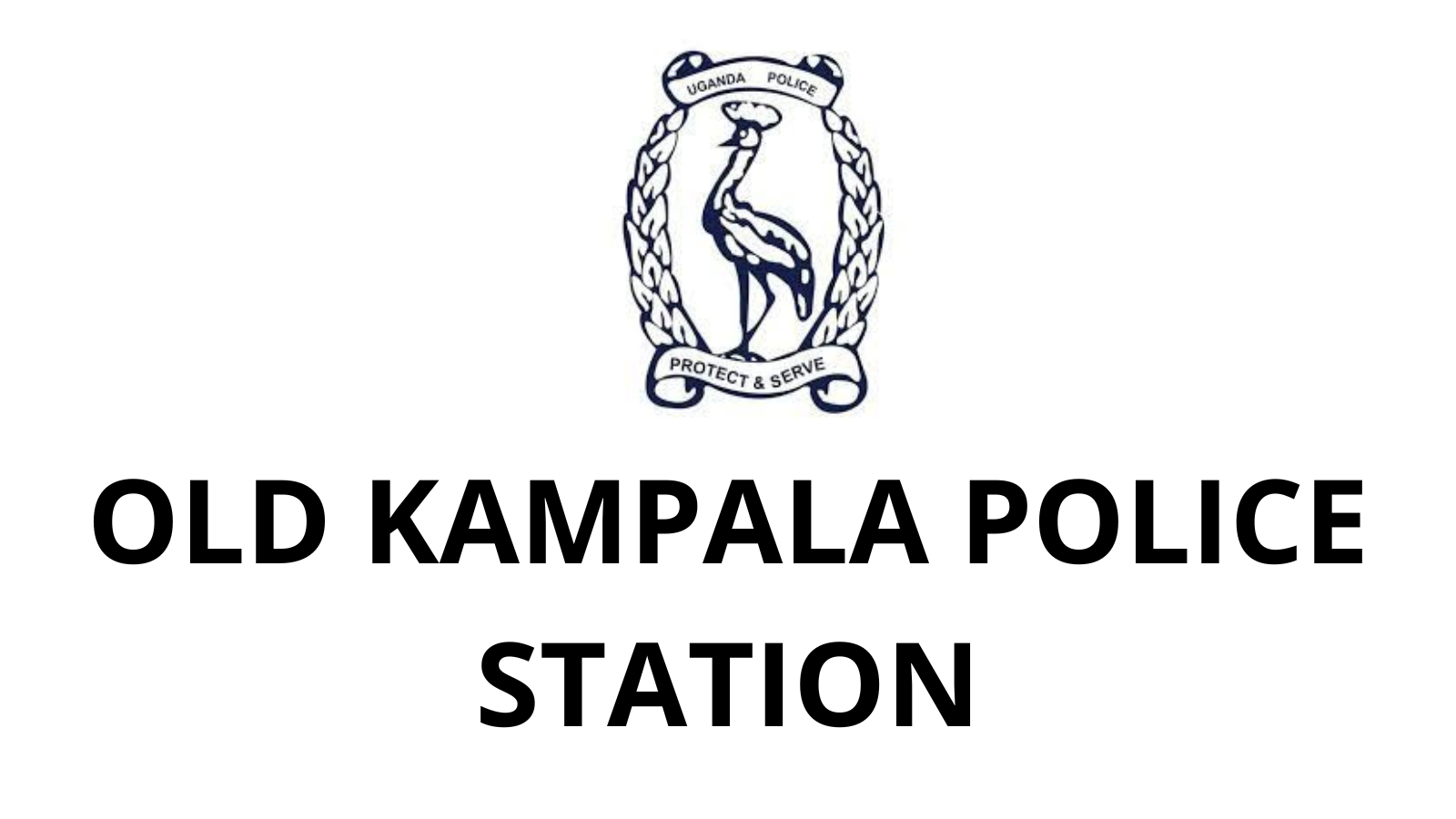
Breaking: Three community land rights defenders from Kawaala have been arrested.
By Witness Radio team
Police at Old Kampala Regional Police Headquarter have arrested three of the six community land rights defenders from Kawaala Zone II, Kampala suburb, and preferred a fraud charge before being released on bond.
Kasozi Paul, Busobolwa Adam, and Kabugo Micheal got arrested on their arrival before being taken inside interrogation rooms. They were questioned from 11:00 AM – 12:30 PM local time and later recorded their statements.
Section 342 of the Penal Code states that forgery is the making of a false document with the intent to defraud or deceive. It carries a three year imprisonment on conviction.
According to lawyers representing victims, defenders are arrested on the orders of the Deputy Resident City Commissioner (RCC) in charge of Rubaga Division Anderson Burora and accused them of fraud.
Resident City Commissioner is a representative of the president in the Capital City at the division level.
The charges are a result of continued resistance by Kawaala community seeking fair compensation and resettlement before Lubigi drainage channel is constructed. Since the first COVID outbreak in 2020, the victim defenders and others have been leading a pushback campaign to stop forced evictions by a multimillion dollars Kampala Institutional and Infrastructure Development Project (KIIDP-2) funded by World Bank. Kampala Capital City Authority (KCCA) is the implementor of the project.
This project first impacted Kawaala Zone II around 2014, when a channel diversion was constructed. The current planned expansion will widen that channel and require forced evictions across an area at least 70 meters wide and 2.5 km long.
The New Vision, a local daily of June 21st, 2022, quoted Burora accusing Kasozi Paul, one of the community land rights defenders from Kawaala Zone II of being a fraudster.
Witness Radio – Uganda challenges the deputy RCC Burora to produce evidence that pins the defenders on fraud instead of criminalizing the work of defenders.
“We warn Mr. Burora against using police to harass defenders who have openly opposed a project which is causing negative impacts on the community” Adong Sarah, one of the lawyers representing the defenders said.
The defenders got released on police bond as they are expected to report back to the police on Monday, the 18th of July 2022 at 11:00 AM local time.
Related posts:
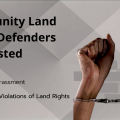
 Kawaala community land rights defenders will report for police bond for the fourth time on 1st August.
Kawaala community land rights defenders will report for police bond for the fourth time on 1st August.
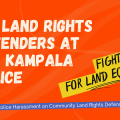 Six community land rights defenders from Kawaala have turned up at police for interrogations but, failed to take off
Six community land rights defenders from Kawaala have turned up at police for interrogations but, failed to take off
 Breaking: Kawaala Community land rights defender has been kidnapped.
Breaking: Kawaala Community land rights defender has been kidnapped.
 Breaking: A Kawaala community land rights defender kidnapped and taken to unknown destinations, others on the run.
Breaking: A Kawaala community land rights defender kidnapped and taken to unknown destinations, others on the run.

A land rights defender and his wife have been arrested, charged, and sent to prison.

Land Grabbing Crisis Escalates in Uganda: Mayiga Urges Citizens to Secure Land Documents

Seizing the Jubilee moment: Cancel the debt to unlock Africa’s clean energy future

Activism on Trial: Despite the increasing repressive measures, Uganda’s EACOP protesters are achieving unexpected victories in the country’s justice systems.

A decade of displacement: How Uganda’s Oil refinery victims are dying before realizing justice as EACOP secures financial backing to further significant environmental harm.

Activism on Trial: Despite the increasing repressive measures, Uganda’s EACOP protesters are achieving unexpected victories in the country’s justice systems.

Govt launches Central Account for Busuulu to protect tenants from evictions

Communities Under Siege: New Report Reveals World Bank Failures in Safeguard Compliance and Human Rights Oversight in Tanzania

Innovative Finance from Canada projects positive impact on local communities.
Over 5000 Indigenous Communities evicted in Kiryandongo District
Petition To Land Inquiry Commission Over Human Rights In Kiryandongo District
Invisible victims of Uganda Land Grabs
Resource Center
- LAND GRABS AT GUNPOINT REPORT IN KIRYANDONGO DISTRICT
- RESEARCH BRIEF -TOURISM POTENTIAL OF GREATER MASAKA -MARCH 2025
- The Mouila Declaration of the Informal Alliance against the Expansion of Industrial Monocultures
- FORCED LAND EVICTIONS IN UGANDA TRENDS RIGHTS OF DEFENDERS IMPACT AND CALL FOR ACTION
- 12 KEY DEMANDS FROM CSOS TO WORLD LEADERS AT THE OPENING OF COP16 IN SAUDI ARABIA
- PRESENDIANTIAL DIRECTIVE BANNING ALL LAND EVICTIONS IN UGANDA
- FROM LAND GRABBERS TO CARBON COWBOYS A NEW SCRAMBLE FOR COMMUNITY LANDS TAKES OFF
- African Faith Leaders Demand Reparations From The Gates Foundation.
Legal Framework
READ BY CATEGORY
Newsletter
Trending
-

 SPECIAL REPORTS AND PROJECTS2 weeks ago
SPECIAL REPORTS AND PROJECTS2 weeks agoActivism on Trial: Despite the increasing repressive measures, Uganda’s EACOP protesters are achieving unexpected victories in the country’s justice systems.
-

 DEFENDING LAND AND ENVIRONMENTAL RIGHTS3 days ago
DEFENDING LAND AND ENVIRONMENTAL RIGHTS3 days agoA land rights defender and his wife have been arrested, charged, and sent to prison.
-

 SPECIAL REPORTS AND PROJECTS7 days ago
SPECIAL REPORTS AND PROJECTS7 days agoSeizing the Jubilee moment: Cancel the debt to unlock Africa’s clean energy future
-

 MEDIA FOR CHANGE NETWORK7 days ago
MEDIA FOR CHANGE NETWORK7 days agoLand Grabbing Crisis Escalates in Uganda: Mayiga Urges Citizens to Secure Land Documents